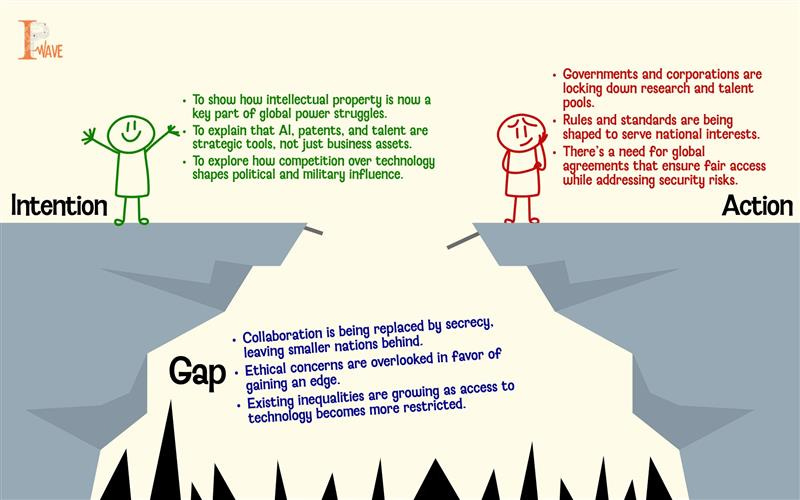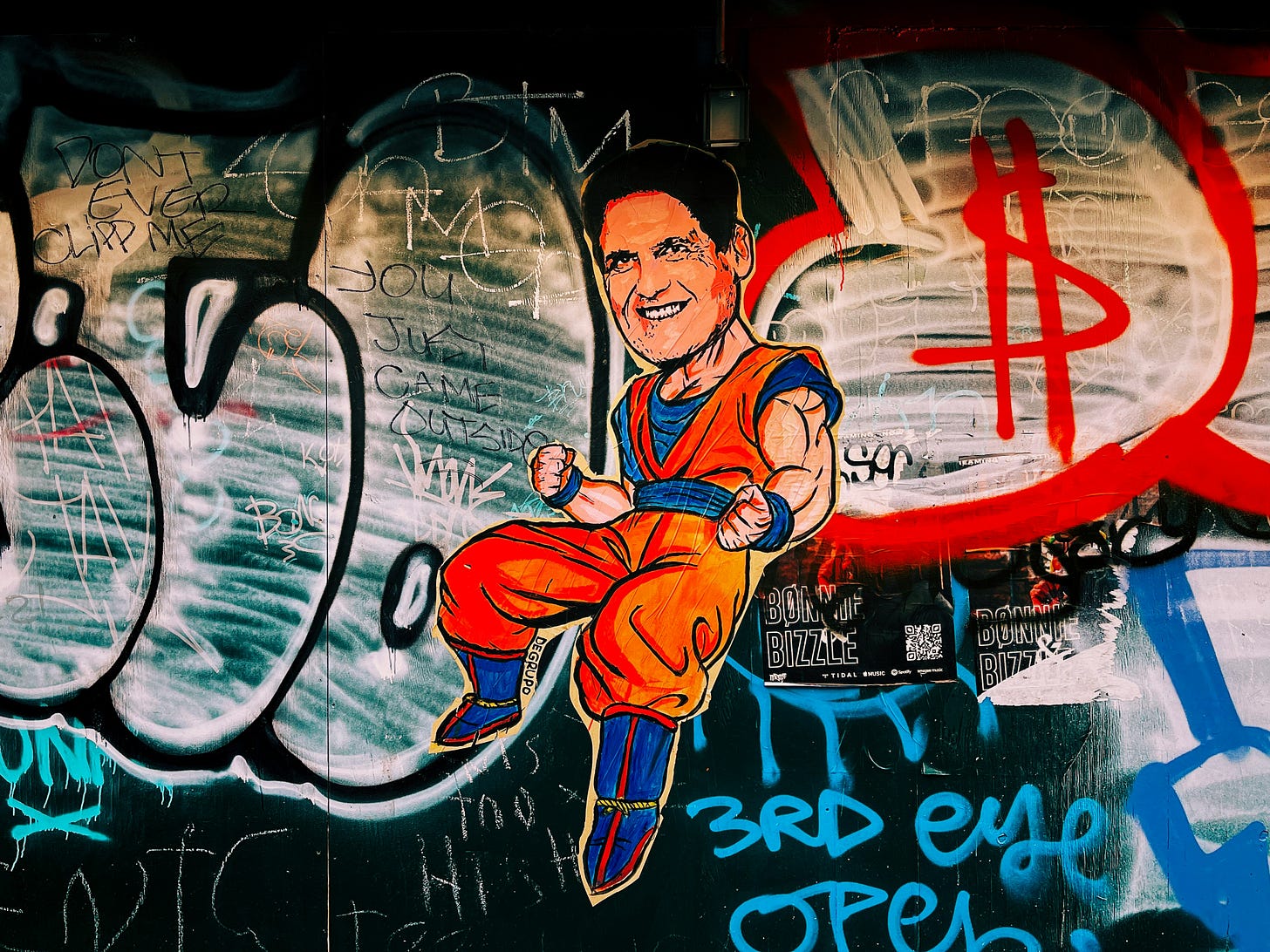The Race for Code and Global Power
Mark Cuban is no fan of understatement, and his view of the AI race is no exception. No kumbaya dreams of scientists trading code on GitHub, please. The future, he maintains, will be controlled by those who stash talent and intellectual property (IP). That is: fewer open labs, more locked vaults. That prediction, while reeking of Silicon Valley cynicism, speaks to a much bigger narrative on how IP has become the frontline asset in today's game of geopolitical chess.
Power Plays and Patents: The Overlay
Intellectual property is now no longer just a technicality for lawyers; it's a stand-in for national power. Take the EU–China dispute at the WTO where arbitrators in 2025 found that Beijing's courts overstepped their bounds in issuing "anti-suit injunctions" that prevent foreign firms from enforcing 5G patents.
What appears to be dull trade law is actually Beijing asserting its muscle to control patents, standards and inadvertently the future.
The statistics speak similarly. In the years 2014 to 2023, China put on the market 38,000 generative AI patents, more than the entire world combined. Washington might be the hegemon of the hype cycle, but Beijing is steadily hoarding IP like rare earths.
Talent as the New Oil
Cuban is correct on at least one point - talent is the fuel of innovation, no matter where one is. In the current market, AI researchers are akin to sports stars with seven-figure salaries. OpenAI and Anthropic poach Europe's and India's top PhDs with million-dollar offers, while China's Thousand Talents Program has long attempted to lure its diaspora scientists back to the mainland with money and status.
This is intellectual property in flesh form. Keeping people is not merely about reputation, it ensures tomorrow's patents, tomorrow's algorithms, and tomorrow's weapons programs. That's why America restricted visas for Chinese researchers, and why universities are now caught in a geopolitical tug-of-war as to who gets to frame the AI talent pool.
Collaboration or Cold Storage?
The discussion on whether AI needs to be open-source or proprietary reflects older ideological differences. Early AI work existed by the credo ‘publish or perish,’ with researchers publishing data and code openly. Then the money arrived. OpenAI, to its credit initially, went whole proprietary the moment Microsoft's $10 billion check cleared. Anthropic, conversely, continues to attempt to don the halo of a mission-oriented altruism that seeks to influence the future of mankind," as if financial gain or profit were a mere afterthought.
But Cuban has a different opinion on what is up. In a trillion-dollar market, benevolence is a thin cover. And geopolitics will always concur. The U.S. increasingly threatens that open-source AI constitutes a national security threat? Its concerns are after all, what if an open model ends up driving Chinese military drones or Russian cyber-attacks? Secrecy, not sharing, is the new norm.
Standards: The Invisible Battlefield
If patents are guns, standards are the game rules. Whoever authorizes them determines who emerges victorious. Beijing has realized this more than most by starting the China Standards 2035 initiative to take over global organizations such as ISO and ITU. These alphabet-soup organizations can be boring, but they determine what technologies become ubiquitous and what disappears.
The West has scrambled to react, and the U.S., Japan, and EU are pressing shared initiatives to synchronize semiconductor and AI norms. Standard-setting is geopolitics by other means, and IP hoarding guarantees a better hand at the bargaining table.
What the Global South is Doing?
For most of the Global South, this arms race of the elite over patents is déjà vu. They've witnessed this act before with pharma, vaccines, and biotech. India and South Africa, during COVID-19, called for a TRIPS waiver to enable poorer countries to produce vaccines without charging suffocating royalties. The West opposed it, illustrating once again that IP tends to safeguard profits over people.
More recently, the WIPO GRATK Treaty of 2024 was a partial victory for Global South nations. It mandates disclosure of traditional knowledge and genetic resources in patent applications, with an attempt to stop "biopiracy" by companies that enclose indigenous knowledge for profits. In this case, IP is not merely about competition; it's about equity, justice, and avoiding another cycle of technological colonialism.
When Algorithms Meet Armour
Why so much secrecy and stockpiling? Because AI is dual-use. The same code that generates poetry could perhaps control drones. China's computer vision patents fuel both Xinjiang's surveillance apparatus and its drones. The Americans are aware of this, which is why they imposed export restrictions on Nvidia's A100 and H100 chips in 2023–24. Washington wasn't concerned about commercial competition per se—it feared the chips would train up China's next-gen military AI.
Here, Cuban's prediction of hoarding sounds less greedy and more realistic. Openness is admirable, but in a world where code is power, states and corporations would rather have locked doors.
Conclusion: Why IP?
So where does Cuban's candid observation fit into the larger picture? It encapsulates a very bitter reality that IP has turned into a geopolitical weapon. Talent is stockpiled like oil, patents are used as missiles, standards are warred over like land, and the Global South battles to stay out of being shut out altogether. In all the landscape is a mess.
The controversy isn't so much whether AI firms share or keep their code secret. It's whether intellectual property will be a kind of public good accelerating our joint advance, or a private arsenal solidifying worldwide hierarchies.
For the time being, the wind is in the hoarders' favour. But history warns us: gates constructed to hoard wisdom tend to topple under the pressure of those shut out. The question is who will be quicker: the gatekeepers, or the gate crashers?



